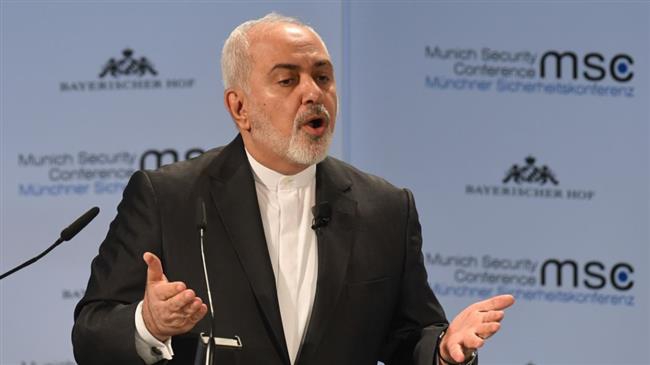Saturday 15 February 2020 - 17:30
Story Code : 370382
Iran says will reverse nuclear steps if Europe gives economic relief
�We have said that we are prepared to slow down or reverse these measures commensurate with what Europe does,� he told reporters at the 56th Munich Security Conference on Friday.
�We will decide whether what Europe does is sufficient to slow down or to reverse some steps � we have not even ruled out reversing some of the steps that we have taken," Zarif added.
Europe set up a special trading mechanism called Instex to enable legitimate humanitarian trade with Iran after Washington�s unilateral withdrawal from the 2015 landmark nuclear deal in May 2018 and re-imposition of sanctions against Tehran.
However, despite repeated promises by the EU to make the mechanism operational, it has yet to complete any transactions.
Tehran remained fully compliant with the nuclear agreement, known as the JCPOA, for an entire year after the US withdrawal, waiting for�the European signatories to the deal to fulfill their end of the bargain by offsetting the impacts of American bans on the Iranian economy.
As the European parties reneged on their commitments, the Islamic Republic moved in May 2019 to suspend its JCPOA commitments under Articles 26 and 36 of the deal covering Tehran�s legal rights.
Iran�has taken�five steps in scaling back its obligations under the JCPOA, among them abandoning operational limitations on its nuclear industry, including with regard to the capacity and level of uranium enrichment, the amount of enriched materials as well as research and development.
Elsewhere in his remarks, the Iranian foreign minister stressed the nation's right to reap�the�economic benefits�of the nuclear deal.
�We�re not talking about charity. We�re talking about Iranian rights and the rights of the Iranian people to receive the economic benefits,� Zarif said.
�We have received irreversible harm or irreparable harm because of US sanctions, but nevertheless we will reverse the steps that we have taken provided that Europe takes steps that are meaningful," he noted.
Iran signed the nuclear agreement with six world powers� namely the US, Germany, France, Britain, Russia and China � in 2015. The deal was also ratified in the form of a UN Security Council resolution.
Earlier this month, EU foreign policy Chief Josep Borrell visited Iran where he met President Hassan Rouhani and voiced hope for the preservation of the JCPOA.
In an article published on the Project Syndicate online journal on February 8, Borrell underlined the need to ensure Iran's benefits in order to prevent the nuclear pact from falling apart.
"Diplomacy cannot succeed unless it is backed by action," he wrote. "If we want the Iran nuclear deal to survive, we need to ensure that Iran benefits if it returns to full compliance."
# Tags











